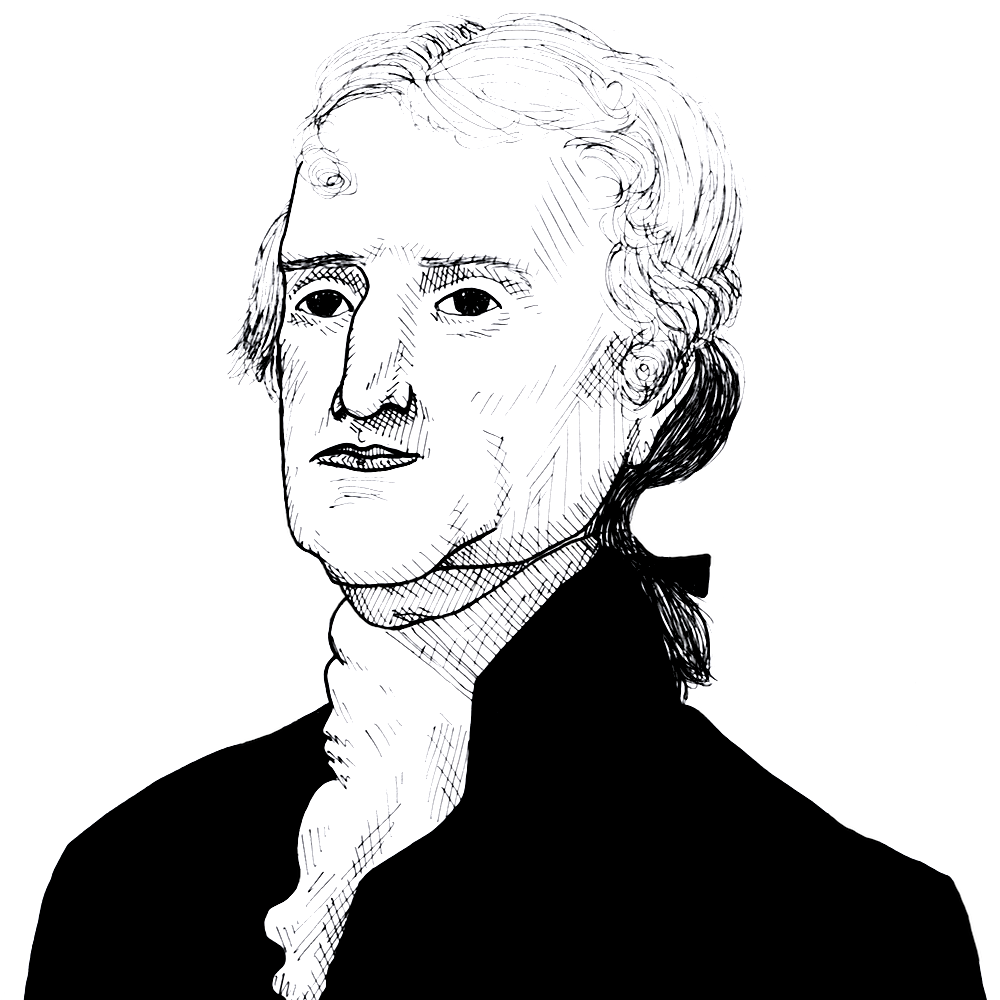
Thomas Jefferson opposed vehemently the Alien and Sedition Laws of 1798 which granted the President enormous powers showing that the government had become a tyranny which desired to govern with "a rod of iron" (1798)
Found in: The American Republic: Primary Sources
Thomas Jefferson opposed vehemently the Alien and Sedition Laws of 1798 which granted the President enormous powers to restrict the activities of supporters of the French Revolution in the United States. Jefferson kept his authorship of the opposing Kentucky Resolutions a secret until 1821. In the 8th resolution Jefferson asserts that the US government had become a tyranny which desired to govern with “a rod of iron”:
Presidents, Kings, Tyrants, & Despots
8th. … that if the acts before specified should stand, these conclusions would flow from them; that the general government may place any act they think proper on the list of crimes and punish it themselves whether enumerated or not enumerated by the constitution as cognizable by them: that they may transfer its cognizance to the President, or any other person, who may himself be the accuser, counsel, judge and jury, whose suspicions may be the evidence, his order the sentence, his officer the executioner, and his breast the sole record of the transaction…
… that these and successive acts of the same character, unless arrested at the threshold, necessarily drive these States into revolution and blood and will furnish new calumnies against republican government, and new pretexts for those who wish it to be believed that man cannot be governed but by a rod of iron: that it would be a dangerous delusion were a confidence in the men of our choice to silence our fears for the safety of our rights: that confidence is everywhere the parent of despotism — free government is founded in jealousy, and not in confidence; it is jealousy and not confidence which prescribes limited constitutions, to bind down those whom we are obliged to trust with power: that our Constitution has accordingly fixed the limits to which, and no further, our confidence may go; and let the honest advocate of confidence read the Alien and Sedition acts, and say if the Constitution has not been wise in fixing limits to the government it created, and whether we should be wise in destroying those limits, Let him say what the government is, if it be not a tyranny, which the men of our choice have conferred on our President, and the President of our choice has assented to, and accepted over the friendly stranger to whom the mild spirit of our country and its law have pledged hospitality and protection: that the men of our choice have more respected the bare suspicion of the President, than the solid right of innocence, the claims of justification, the sacred force of truth, and the forms and substance of law and justice. In questions of powers, then, let no more be heard of confidence in man, but bind him down from mischief by the chains of the Constitution.